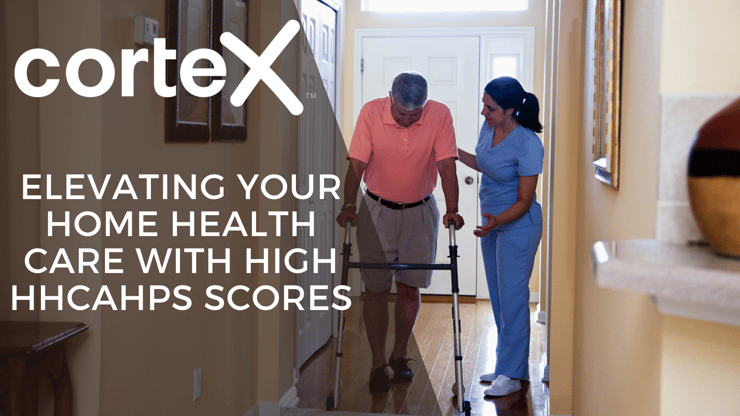There are many media sources providing updates on COVID-19, cases, deaths, and testing. Public health agencies like the World Health Organization (WHO) and Centers for Disease Control and Prevention (CDC) coupled with the local and national response team are learning, around-the-clock, just how to respond to this threat. The numbers are ever-changing and the growing concern is a lot to tackle.
As infections grow, we've tailored our platform and introduced a COVID-19 Command Center to help providers with the immense task and amount of preparation and education among skilled nursing, home health, home care, and other post-acute providers.

We’ve learned so much information in such a short amount of time that we’ve identified 5 key lessons and takeaways that have emerged from our client interactions and how we’re together managing employee comfort and patient awareness.
1) Highest Risk Infection is your Team
In Washington, one of our customers had the virus spread to their patients from staff that worked at an infected location. The staff were not symptomatic at the time. Besides already limiting visits, here are some suggestions:
Recommendation: Ensure you know which staff members work at other locations and make sure they are especially careful in preventing any transmission.
Recommendation: Survey staff regularly, possibly daily, on symptoms and weekly on morale and concerns.
Would you like to survey your staff on symptoms and concerns? Cortex can help. We are offering our employee survey solution for free during the COVID-19 scare. Contact us to learn how to use it.
2) These Times Test our Resiliency and Empathy
COVID-19 has evolved in just a few weeks from a general awareness into a real panic and concern for the safety and protection of our patients, staff, and families. Times like this provide us with opportunities to exhibit our global capacity for goodness, resiliency, and patience.
Start by preparing yourself and then find a way to help others. As leaders, be empathetic to what your teams, staff, and patients are going through. Take time to talk with one another and to offer support.
Recommendation: Add positive, arms-length “huddles” during staff transition to thank everyone for their service.
Recommendation: Send gift cards to staff who go above and beyond.
Recommendation: Find out if your staff has personally prepared themselves and their families.
3) Change your Outbound Call Scripts
Even while we are focused on our own facilities and on-service patients, post-acute providers and patient care managers need to coordinate and provide accurate, up-to-date information to and from their past patients. When you follow-up with those recovering at home, here are the questions you need to ask:
- In the past 2 weeks, have you experienced any of the following symptoms - shortness of breath, runny nose, sneezing, fever, cough, fatigue, nausea, vomiting, diarrhea, or difficulty breathing?
- Do you believe you’ve had contact with anyone who has tested positive for COVID-19?
- Do you feel like you know what to do in the event you are exposed to COVID-19?
4) Proactive Patient Outreach is Crucial
Active patient monitoring is important not only for early detection and control, but also for patient well-being. Reassessing your entire care strategy when patients are recovering at home is likely not an option during this time; however, minor changes to frequency can be implemented easily. Here are some practices that our customers have recently implemented:
- Add a text-line or group email for internal identification of possible COVID-19 patients.
- Add a phone call in between visits.
- Use FaceTime or other telemedicine methods to conduct a visit.
Don’t have resources to call all your patients? Cortex can help. We have over 400 Registered Nurses ready to begin calling your patients using our COVID-19 Outreach Protocol. Contact us here.
5) Address your Staff’s Most Pressing Concerns
One of our home health partners worked with Cortex to deploy an internal survey to quickly gauge employee confidence and questions. Within 24 hours of the request, we received 418 staff responses which amounted to almost 50% of those surveyed. We asked the question, “What do you want to know about COVID-19 and/or Company Y's response to the situation?”
Our primary learnings were that employees were most concerned about:
- How to determine what were essential vs non-essential activities to reduce risk.
- How to provide guidance to patients with COVID-19 and how might patient interactions change.
- What is the correct usage of PPE supplies and how to manage shortages.
- What are there plans for treating patients with confirmed cases of COVID-19 in homes.
Lastly, there is an obvious concern for employment among teams, clinicians and therapists. Please continue to practice empathy. Find other ways to allocate resources including outbound calls, creating documentation about best practices, reach out to other groups to see where you can help, send care packages with your next few visits, etc
We hope you all stay safe and prepared during this time and let us know where we can help you.




